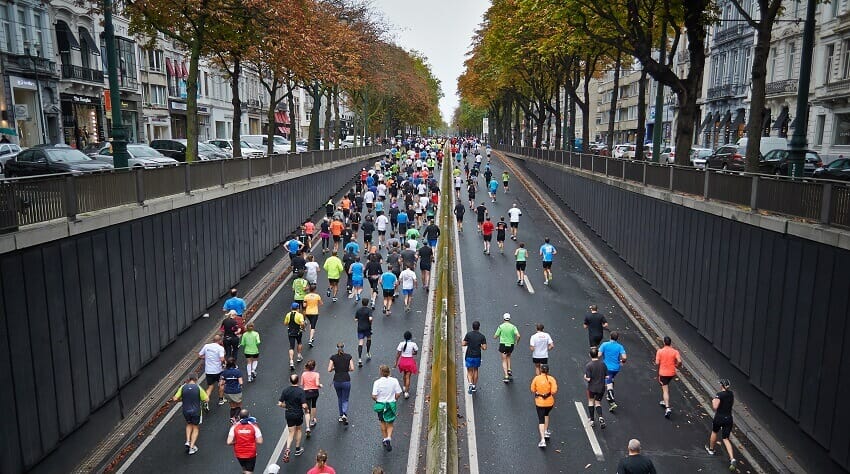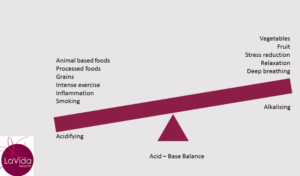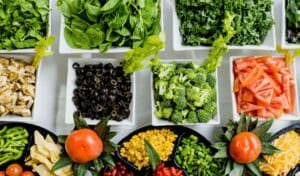Perhaps you are exercising to help manage your weight. Or maybe you exercise for your mental health or for strength and fitness or even just for fun. Have you ever given any thought to the role of your nutrition in how you perform and how you recover?
You have likely invested in the right equipment and gear to optimise your performance. Or maybe you are paying for classes or coaching. But what about your most important piece of equipment? I’m talking about your body.
The benefits of optimising your nutrition for exercise
Regardless of your preferred form of exercise or the reason you do it, you probably want to do your best and improve over time, right? And no doubt you want to minimise your risk of injury and illness.
The benefits of getting your nutrition right include:
- Better performance – eg faster times, heavier weights, better endurance
- Better recovery – less fatigue or aches and pains
- Reduced risk of injury because you don’t tire as quickly
- Better body composition (especially important if you are trying to lose weight)
Don’t overlook the importance of the appropriate food or nutrients at the right time to support all your hard work and get the most return for your efforts.
Different types of exercise require different nutrition plans
Depending on the type or duration of your exercise session you need to adjust your nutrition intake accordingly.
Aerobic exercise
From being “at rest” up to approximately 60-65% of your maximum effort you are producing energy aerobically.
Aerobic exercise includes things like walking, a slow jog, yoga, golf, pilates, housework etc.
This level of exercise uses mainly fats and carbohydrates (glucose/sugar) to produce energy. This happens in the mitochondria (our “battery packs”) via a process called oxidation. After 20-30 minutes our stores of glucose are run down and we start burning fat stores and glucose in our blood.
So, the longer the duration of this type of activity the higher the ratio of fat being used for energy.
Anaerobic exercise
Your anaerobic energy system kicks in at 60-65% maximum effort and greater because the aerobic system can’t keep up with demand (although it still works in the background).
At this level of effort, your energy is primarily produced in the cytoplasm of your cells via a process called glycolysis. The dominant fuel source is carbohydrates.
At 60% effort, this system will keep going for about 30 minutes before requiring refuelling.
At 95-100% effort (i.e. a short sprint or lifting a very heavy weight once) your body uses your stores of phosphocreatine for fuel. You have enough of this fuel for about 10 seconds of effort but it replenishes within 2 minutes so you can go again (eg HIIT training or repeated sprints).
When to eat before or after exercise
Here are my guidelines for whether you need to eat before or after exercise:
Before exercise
- If you exercise for an hour or less or if it’s more aerobic (i.e. up to 65% effort) you don’t need to eat beforehand.
- More intense workouts or longer sessions will benefit from a 10-20gram carbohydrate snack beforehand (your body’s preferred fuel is carbs in these sessions). This will enable you to train harder for longer so you will get more out of your workout.
- If you are female, you are more sensitive to the effects of cortisol and are therefore better off eating something small before exercise.
After exercise
What you do after exercise is even more important than what you do beforehand. The right post-exercise fuel helps with tissue repair, building muscle, weight loss, recovery and immune health.
- Start the process of refuelling within 30-60 minutes. This will prevent the onset of fatigue and stop your brain from sending out signals for sugar. You don’t need to eat quickly, just start the process.
- This also applies if you are doing intermittent fasting. Please eat within 30-60 minutes of exercise (i.e. don’t exercise in the morning and then wait till midday to eat)
- You need both carbohydrates and protein (generally in the ratio of 3 or 4 to 1).
Try this post-workout smoothie.
For those looking to burn fat or lose weight
If you are looking to lose weight, you might have worked out that less strenuous exercise is your friend. You are better off doing longer, less intensive sessions more often i.e. up to 60% effort. (You can do the anaerobic exercise too but don’t do it exclusively).
As you get fitter, you will also become a more efficient fat burner.
Remember to adjust your kilojoules intake downwards on the days you don’t exercise but don’t starve yourself on the days you exercise.
Don’t overlook stress and sleep
Getting these two aspects of your health under control is crucial. Excess stress or poor sleep both result in higher levels of cortisol. The higher your cortisol the more you will use carbohydrates for fuel instead of fat.
Key nutrients for getting the most out of your exercise
Protein
Protein is vital for the growth and maintenance of all body tissue (especially muscle and blood – very important as we age)). It is also needed for the production of hormones and enzymes and the maintenance of a healthy immune system.
Insufficient protein leads to impaired performance and it may take some time for a deficiency to become apparent.
Animal and soy protein are the best sources of the 8 essential amino acids including the branched-chain amino acids. These have been shown to improve and maintain lean muscle mass as well as aid recovery from intense exercise. A whey protein powder may be useful to increase your protein intake.
Collagen is another form of protein that is great for tissue healing, lean muscle and weight management.
If you are a vegetarian or vegan you need to be very mindful of your protein intake. A rice or pea protein powder may be a useful component of your diet.
Depending on your size and exercise goals you may need to aim for approximately 100g of protein every day spread over all your meals.
Carbohydrates
Carbohydrates are the body’s preferred fuel source. Choose foods with a low glycaemic index that will provide sustained energy. These include whole grains, legumes, vegetables and some fruits.
Water
Water is vital for hydration. Drink throughout the day, not just when you are exercising. Electrolyte drinks (beware the sugar) may be useful if you are sweating a lot or exercising for more than an hour or so. Think about developing a hydration plan that takes into account your “sweat rate”.
Other beneficial nutrients
A diet rich in fruit and vegetables and green tea will provide antioxidants to help overcome the oxidative effects of exercise and is a good place to start.
If you want to be more targeted or if your specific needs are greater than your diet is providing, then consider the following:
Co-enzyme Q10 is a nutrient found in every plant and animal cell and is essential for the production of energy and healthy mitochondria. Although you can get it from your diet, endurance athletes may require additional supplementation.
Iron is vital for well-oxygenated blood. People who exercise regularly and intensely may have a greater demand for iron due to increased iron losses as muscles repair.
B vitamins are essential for energy production and folate and vitamin B12 are required for cell repair and replication.
Curcumin is now well known for its anti-inflammatory benefits. It’s useful for recovery and reducing pain, especially in joints (without the side effects of non-steroidal anti-inflammatory drugs).
Sour cherry – this is a particularly helpful supplement leading up to and after an event. It helps to reduce muscle soreness and improve recovery.
Glucosamine supplementation has been shown to reduce the extent of degradation of collagen in cartilage.
Magnesium is essential for the regulation of muscle relaxation and is also required for energy production, electrolyte balance and oxygen uptake. Increased intake is required during times of increased physical activity to reduce cramps and aid muscle recovery.
If you suffer from an injury, supplementation with a good quality fish oil high in EPA can help to reduce the associated inflammation. You might also benefit from extra protein and zinc for cellular repair and collagen synthesis. Vitamin C and bioflavonoids are also required for tissue integrity.
Make sure you allow recovery time as this is when your body refuels and repairs in order to avoid loss of muscle.
Don’t just focus on the day of the activity or event
It’s important to realise there is a lot more to achieving a personal best than “carb loading” and drinking a sports drink. Good nutrition which has been tailored to your specific needs is vital for stamina and endurance, strength, concentration, focus and mental alertness as well as repair and recovery.
Poor nutrition generally, (not just leading up to the day) can really compromise your results. It can take you from a “champion” to the middle of the pack.
And don’t forget, if you are seriously training for a particular event, you need to practise your nutrition just like you practise every other aspect of your routine.
What about us non-sporty types?
Good nutrition is not just for athletes. Everyone who exercises can benefit from a nutrition plan that is tailored to their specific goals, health and body type.
As a naturopath, I work with many “weekend athletes” as well as regular people just trying to maintain their health or lose a bit of weight. Taking into account your exercise regime as well as health issues that may be affecting you, I can help you with eating plans, food choices and supplements.
I also use my knowledge as a herbalist to make individualised tonics to help with recovery, endurance, tissue repair and immune support (immunity takes a beating due to the stresses of extensive exercise).
Herbal tonics can help with endurance, fatigue, physical stress, pain, tissue healing and adrenal support.
So, if you feel like your performance is not reflecting the quality of your equipment or your effort, take a look at your diet or let me work with you to help you achieve your best.





